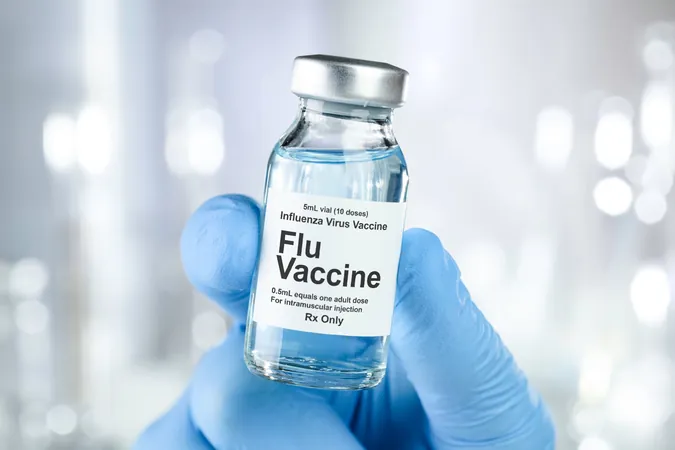
New Study Reveals Safe Vaccination Strategy for Older Adults: Zoster and Influenza Shots Together?
2024-10-31
Author: Rajesh
What the Study Entails:
Conducted during the flu seasons of 2021-2022 and 2022-2023 at Duke University Medical Center and Johns Hopkins University Medical Center, the study involved a randomized, blinded design. A total of 267 older participants, with a median age of 71 years, were divided into two groups. One group received the combination of RZV and aIIV4, while the other group received RZV alongside the quadrivalent high-dose inactivated influenza vaccine (HD-IIV4). Both groups were monitored for adverse reactions during a 7-day post-injection assessment period.
Safety Reports Are Promising:
The primary goal of the study was to assess severe adverse events (AEs) following the first RZV dose, specifically comparing individuals aged 65-69 and those aged 70 and older. Surprisingly, the safety profiles were similar between both vaccination groups. The proportion of individuals experiencing at least one severe solicited reactogenicity event was not significantly different: 11.5% in the RZV-aIIV4 group compared to 12.5% in the RZV-HD-IIV4 group.
No Serious Complications Noted:
During the 43-day follow-up, there were no reports of Guillain-Barré syndrome or deaths. There were a few serious adverse events, with notable occurrences being 1 in the RZV-aIIV4 group and 5 in the RZV-HD-IIV4 group. Additionally, no participants required medical attention for any local or systemic reactions during the crucial days post-vaccination.
Quality of Life Unchanged:
Health-related quality of life assessments indicated that participants reported minimal changes from day 1 through day 8 post-vaccination, reinforcing the idea that this vaccination strategy does not adversely affect well-being.
The Bigger Picture:
This significant finding opens avenues for improved vaccination strategies for the aging population, particularly in easing the strain of simultaneous vaccinations in older adults who are highly susceptible to both herpes zoster and influenza. As winter approaches, making strides in vaccination methods could be vital in protecting this vulnerable age group.



 Brasil (PT)
Brasil (PT)
 Canada (EN)
Canada (EN)
 Chile (ES)
Chile (ES)
 España (ES)
España (ES)
 France (FR)
France (FR)
 Hong Kong (EN)
Hong Kong (EN)
 Italia (IT)
Italia (IT)
 日本 (JA)
日本 (JA)
 Magyarország (HU)
Magyarország (HU)
 Norge (NO)
Norge (NO)
 Polska (PL)
Polska (PL)
 Schweiz (DE)
Schweiz (DE)
 Singapore (EN)
Singapore (EN)
 Sverige (SV)
Sverige (SV)
 Suomi (FI)
Suomi (FI)
 Türkiye (TR)
Türkiye (TR)